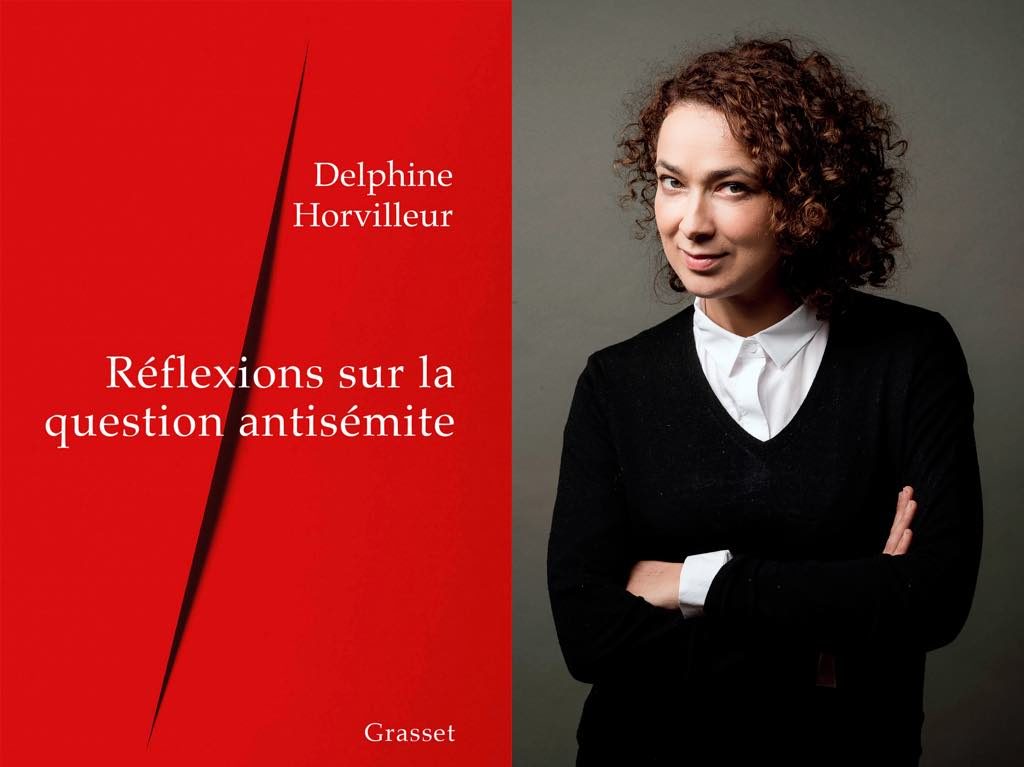
Delphine Horvilleur, one of only three women rabbis in France, goes back to the origins of anti-Semitism in her latest book, Réflexions sur la Question Antisémite (Reflections on the Question of Anti-Semitism) to show how racism and anti-Semitism differ from each other. Racism, as she sees it, is the fear of the other who is obviously different from oneself – one who has skin of a different color, for example – while anti-Semitism is the fear of someone who looks like you yet is different.
In researching the book, whose title is a reaction to Jean-Paul Sartre’s essay “Réflexions sur la Question Juive“ (1946), published in English as Anti-Semite and Jew, in which he posits that “the gaze of the anti-Semite creates the Jew,” Horvilleur dug deep into the rabbinical texts and the Hebrew Bible. Last week, in a meeting with journalists from the Anglo-American Press Association, she spoke about the Book of Esther, in which Haman, “the inventor of genocide,” plots to kill all the Jews in Persia. “He hated the Jews in his country,” says Horvilleur, “because they were same but different.”
The same holds true in France, she said. “No one knows who is a Jew here.” Until recently, she pointed out, Googling the name of any famous French person – former presidents François Hollande or Nicolas Sarkozy, for example – would bring up among the most popular search keywords the word “juif” (Jew) next to the name, an indication that users were checking to find out if the person was Jewish (following a legal decision, Google is no longer allowed to associate the word “juif” with a name search).
Another distinction between racism and anti-Semitism is that “racism is about considering the other as below you, a barbarian,” she said. “It’s a superiority complex. Antisemitism is the opposite: the Jew is thought to have something you don’t have, to have stolen something from you. It’s an inferiority complex.”
She gave the example of what happened in 2014 when Jewish shops in the Paris suburb of Sarcelles were being attacked. When young locals were interviewed about it, their usual response was, “The Jews have what we should have. They have the best apartments, they have more money than us.”
Her book also looks at the commonalities between anti-Semitism and misogyny, showing how the Jewish male is feminized in the eyes of anti-Semites and attacked for the same reasons women are despised and belittled: for being weak, parasitic, loving money, loving power, etc.
In spite of a string of anti-Semitic attacks and incidents in recent years, Horvilleur pooh-poohed the widely publicized perception that Jews are now leaving France in droves, even though she acknowledges the increasing rate and seriousness of such aggression and has herself has become accustomed to receiving hate mail from both anti-Semites and right-wing Jews who see her as a traitor.
She is deeply offended, however, when journalists ask her if she will leave France or if there is a future for Jews in France. “I think this question is obscene. I want to tell them, ‘Anti-Semitism is not my problem. It’s the nation’s problem. It’s the revelation of a national failure. It’s the first sign of a national crisis’.”
While they cannot be ignored, anti-Semitic incidents are not “normal life” for her, however. “My family feels pretty secure in Paris,” she said. “You have to look at the whole picture. It’s also about a certain level of violence in society. An anti-Semitic act is one among others.” We can’t give in to fear, she added, as it paralyzes people and prevents them from acting.
Horvilleur sees the late Simone Veil, a Holocaust survivor and who went on to become a lawyer and influential politician, as a model, “a figure of resilience par excellence who never let tragedy define her. She taught us that victimhood literally kills us.”
Born in 1974 in Nancy, France, Horvilleur belongs to the Mouvement Libéral Juif de France (Liberal Judaism Movement of France) and is the editor of the revue “Tenou’a – Atelier de Pensée(s) Juive(s).” Réflexions sur la Question Antisémite is her fourth book.
Buy Réflexions sur la Question Antisémite.
Favorite
My husband and I will be in Paris in late November/early December of this year. Would it be possible to send me the location of her synagogue so my husband and I can attend services?
Thank you so much,
Margot Duxler
Information can be found at https://www.mjlf.org/en